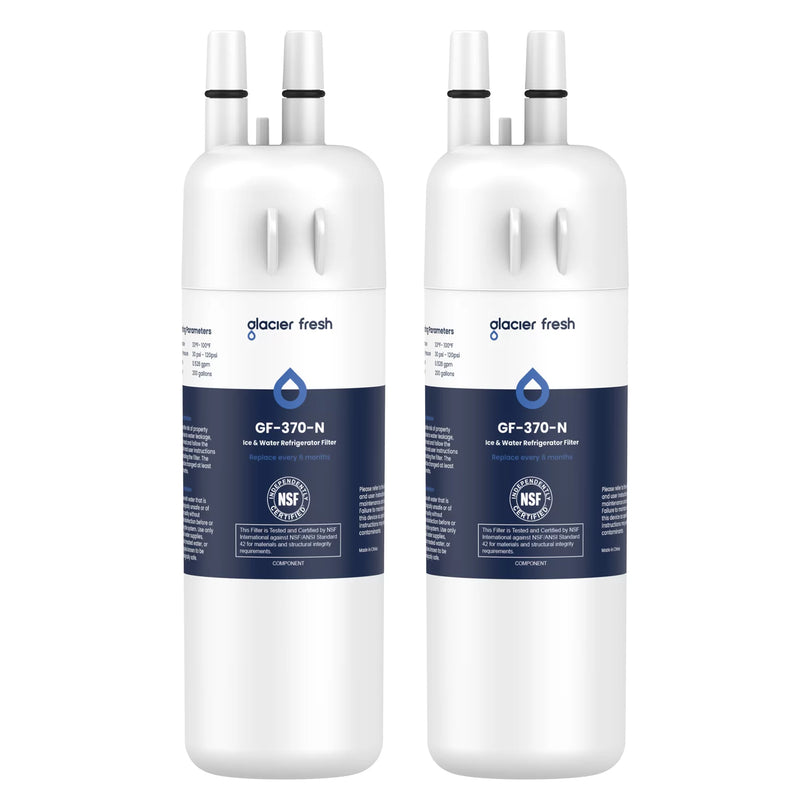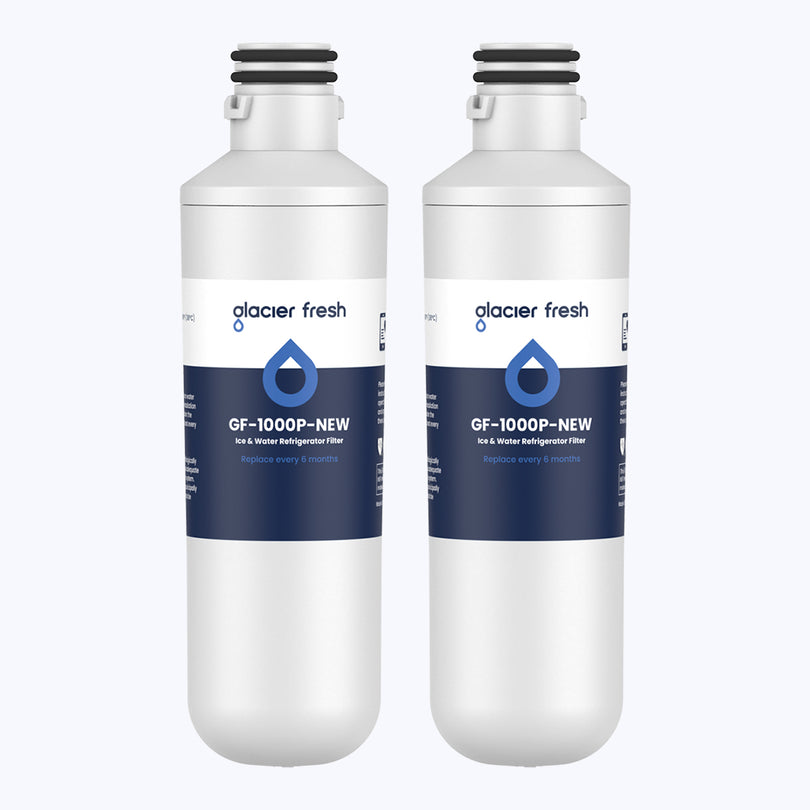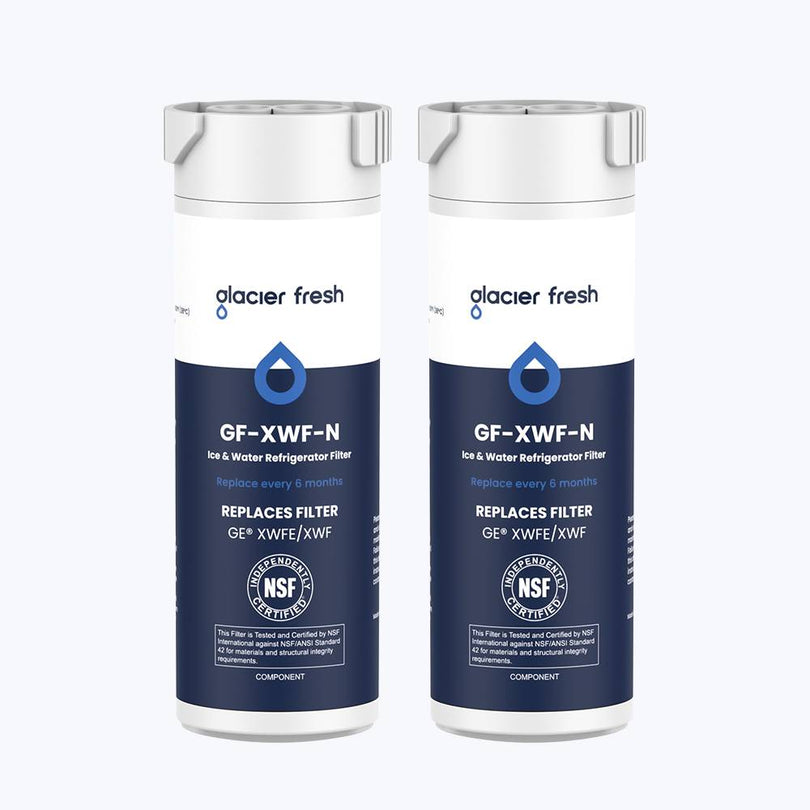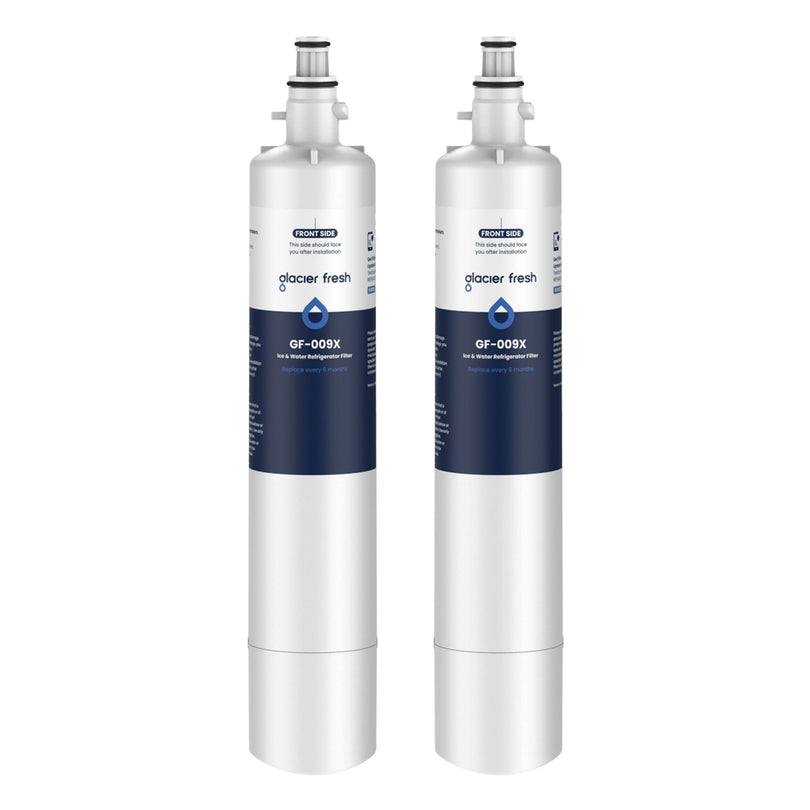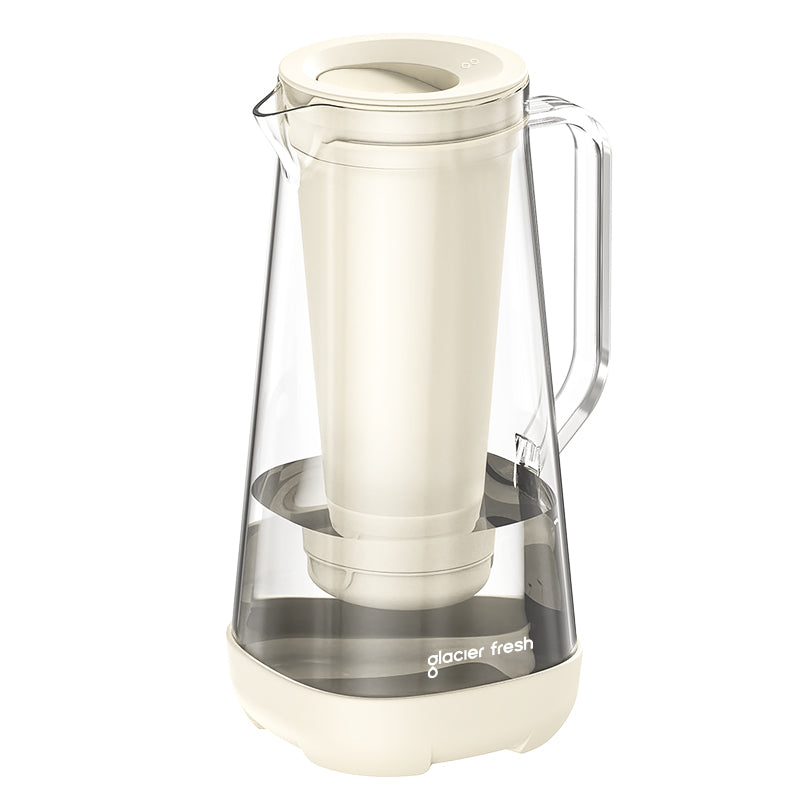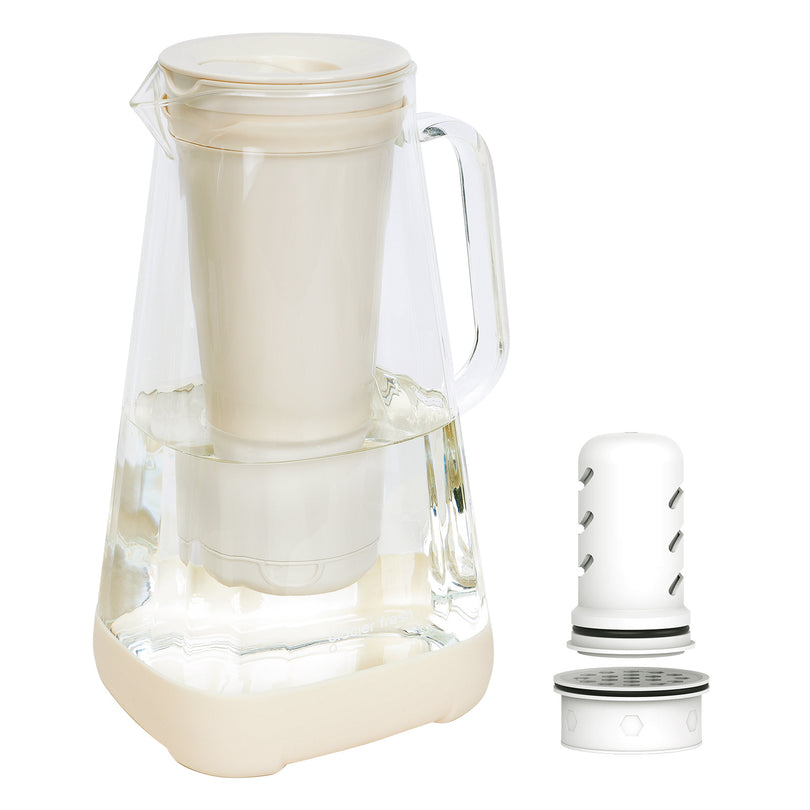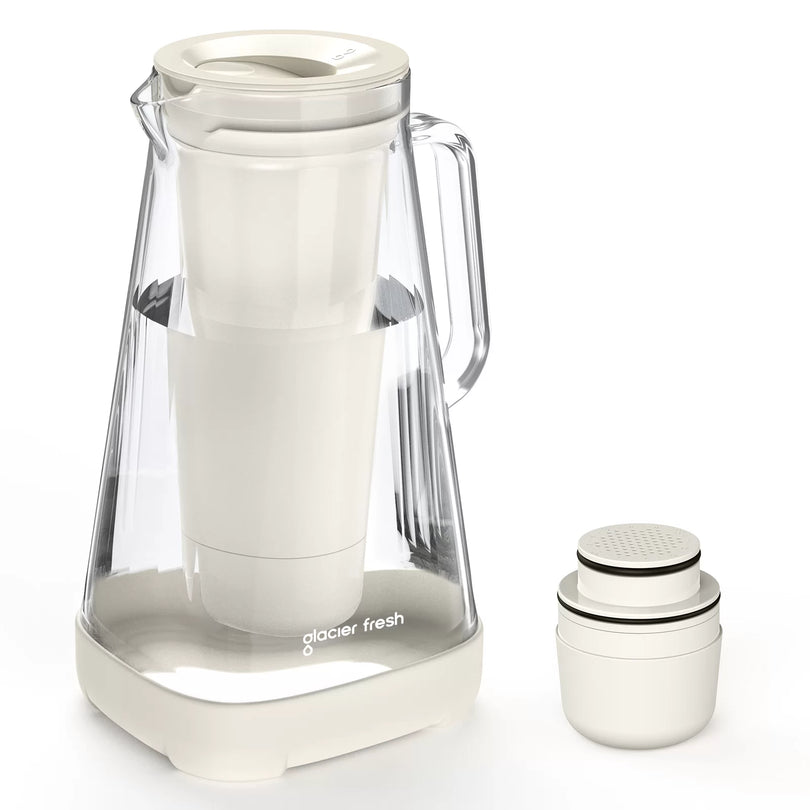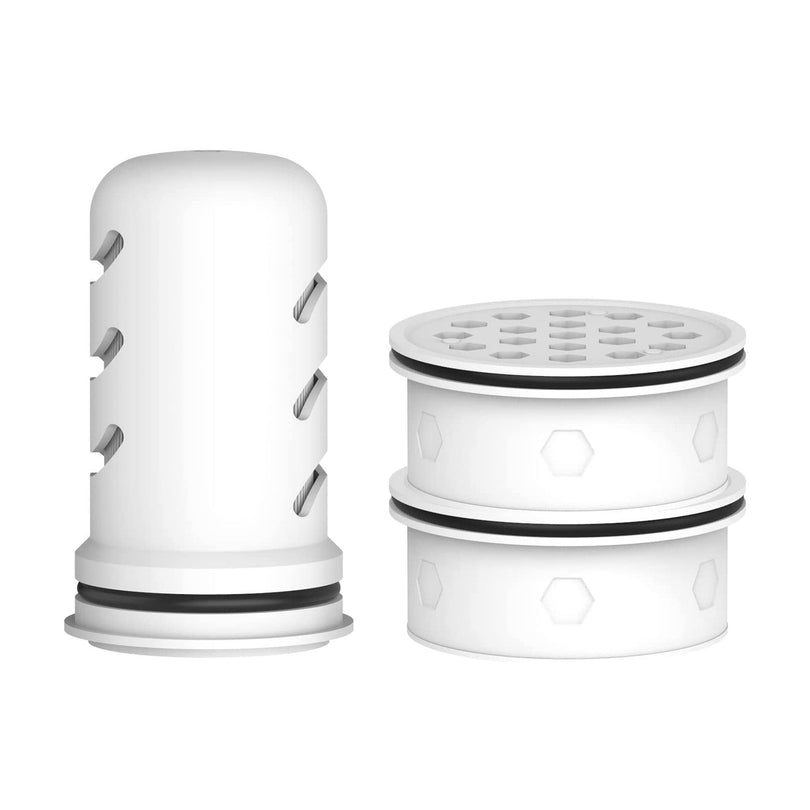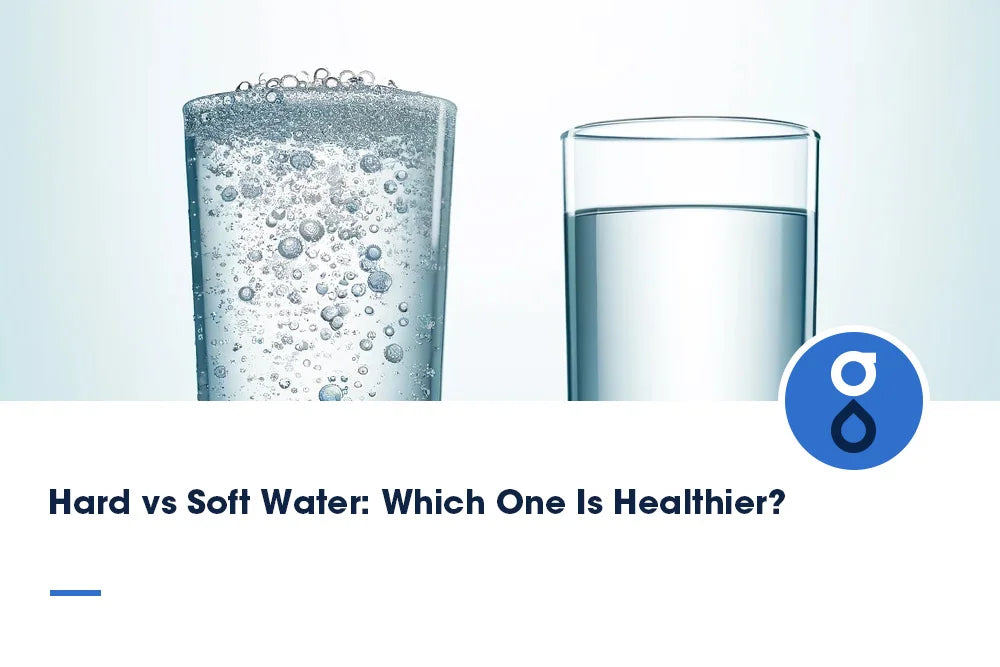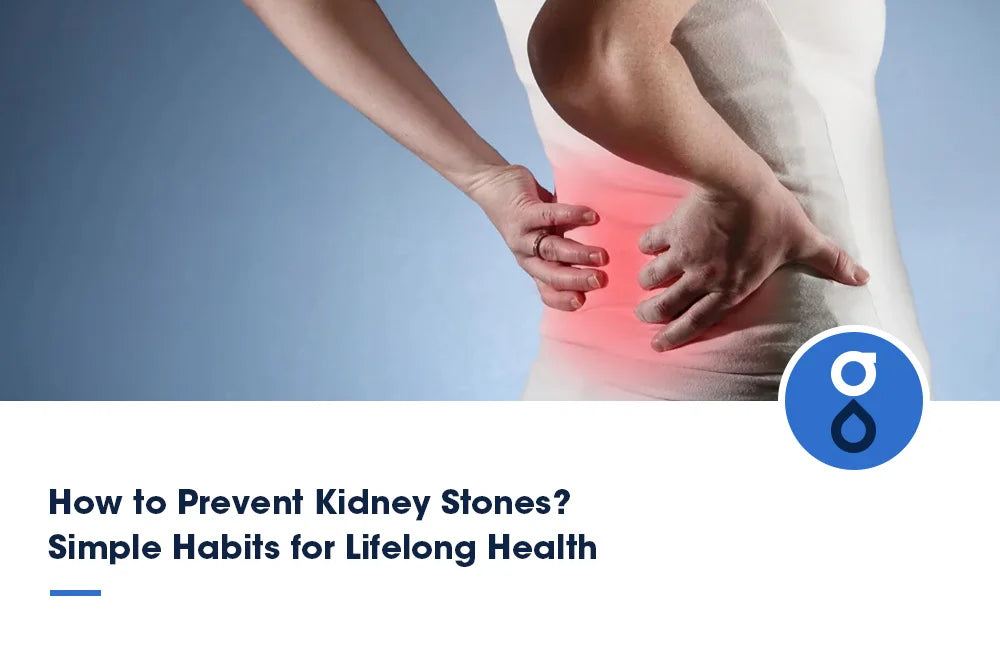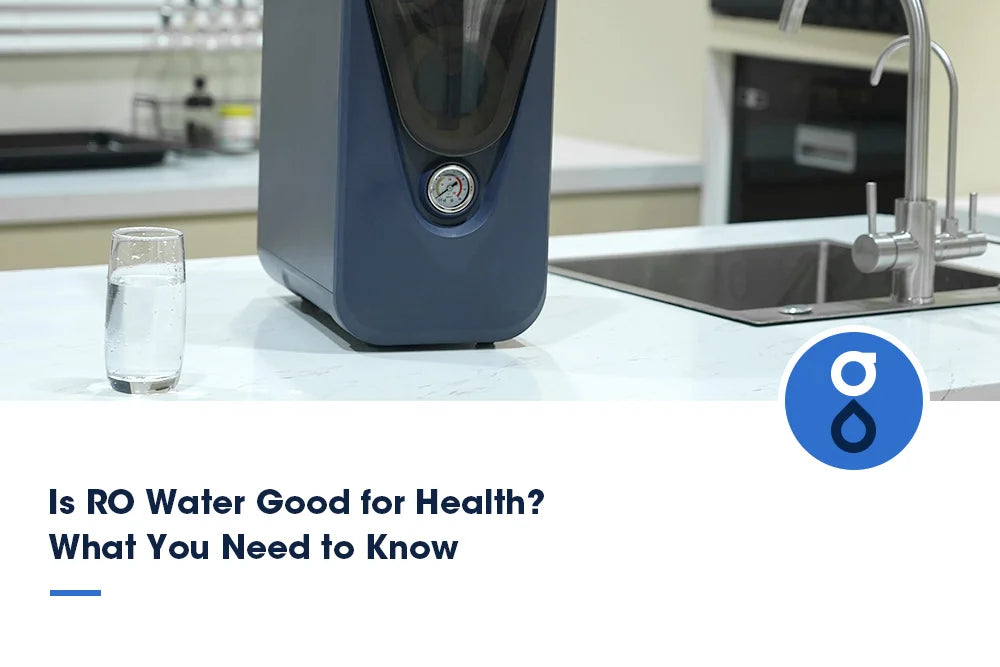Table of Contents:
Was ist hartes Wasser?
Was ist weiches Wasser?
Hartes vs. weiches Wasser: Wichtige Unterschiede
Welches ist gesünder?
Tipps für gesundes Wassertrinken
FAQs
Abschluss
Schließlich ist nicht jede Wasserart gleich. Hartes oder weiches Wasser ist keine Frage des Geschmacks oder der Reinigung, sondern eine Frage der Gesundheit und des menschlichen Lebens. Ob Sie Wasser trinken, duschen oder das Haus putzen, das Wissen, ob das Wasser hart oder weich ist, kann einen erheblichen Unterschied für Ihre Lebensqualität bedeuten.
In diesem Artikel besprechen wir die wichtigsten Unterschiede zwischen hartem und weichem Wasser, geben Tipps, welches Wasser gesünder ist und geben Tipps, wie Sie die beste Option für Ihr Zuhause auswählen.
Was ist hartes Wasser?

Zu den hochgelösten Mineralien im harten Wasser zählen vor allem Kalzium und Magnesium. Diese Mineralien werden beim Durchdringen der unterirdischen Kalkstein- und Kreideablagerungen abtransportiert. Obwohl hartes Wasser trinkbar ist, kann sein übermäßiger Mineralgehalt Rückstände hinterlassen und zu Verkalkung in Rohren und Geräten führen.
Fast 85 Prozent der Haushalte in den USA leiden unter hartem Wasser. Diese Mineralien beeinflussen den Geschmack, die Reaktion der Seife mit dem Wasser usw.
Was ist weiches Wasser?
Weiches Wasser hingegen ist Wasser, das aufbereitet wurde, um einen Großteil des darin enthaltenen Kalziums und Magnesiums zu entfernen. Dies wird am häufigsten durch Ionenaustausch erreicht, normalerweise in Form eines Wasserenthärters.
Je nach Enthärtungsmethode kann weiches Wasser mehr Natrium enthalten und viel sanfter und wesentlich reinigungseffizienter sein, es enthält jedoch keine der guten Mineralien, die hartes Wasser hat.
Hartes vs. weiches Wasser: Wichtige Unterschiede

Die Unterscheidung zwischen weichem und hartem Wasser kann dabei helfen, das jeweils beste Wasser zu finden. Wir können nun auf die wesentlichen Unterschiede eingehen.
Mineralstoffgehalt
Hartes Wasser enthält viele Mineralien, die reich an Kalzium und Magnesium sind und bei täglicher Einnahme zusätzliche Mineralien liefern.
Weiches Wasser : Es enthält keine Mineralien; es kann jedoch Natrium enthalten, das durch den Enthärtungsprozess entstanden ist.
Geschmacks- und Texturunterschiede
Hartes Wasser : Es schmeckt eher metallisch oder mineralisch und wird von manchen Menschen geschätzt.
Weiches Wasser : Weicher und sogar etwas salzig, je nach Grad der Enthärtung.
Auswirkungen auf Reinigungs- und Hausarbeiten
Hartes Wasser: erzeugt Seifenschaum, verstopft Geräte und verringert die Wirksamkeit von Seifen und Reinigungsmitteln.
Weiches Wasser : Sauber, lässt sich leicht abspülen, Oberflächen und Kleidung sind sauber und Rohrleitungen und Geräte halten länger.
Auswirkungen auf die Gesundheit
Hartes Wasser : Dies ist notwendig und muss verwendet werden, kann aber beim Baden Haut und Haare austrocknen.
Weiches Wasser : Sanfter zu Haut und Haar und kann bei Einnahme großer Mengen zu einer erhöhten Natriumaufnahme führen.
Vergleichstabelle
|
Besonderheit |
Hartes Wasser |
Weiches Wasser |
|
Mineralstoffgehalt |
Hoch (Kalzium, Magnesium) |
Niedrig |
|
Schmecken |
Mineralreich, manchmal metallisch |
Mild, kann leicht salzig sein |
|
Reinigungseffizienz |
Niedrigere Ursachen für Ablagerungen |
Hoch, verhindert Rückstände |
|
Auswirkungen auf die Gesundheit (Trinken) |
Nützliche Mineralien |
Möglicherweise fehlen wichtige Mineralien |
|
Auswirkungen auf die Gesundheit (Baden) |
Kann trockene Haut und Haare verursachen |
Sanft zu Haut und Haar |
Welches ist gesünder?
Bei hartem oder weichem Wasser hängt die Frage, ob das Wasser gesünder ist, maßgeblich von der Verwendung des Wassers ab. Trotz der Vor- und Nachteile der einzelnen Wasserarten unterscheiden sich die gesundheitlichen Auswirkungen beim Trinken, Baden und im Haushalt deutlich. Wir beginnen mit der Betrachtung der gesundheitlichen Auswirkungen aus der Sicht des Trinkwassers.
Trinkwasserperspektive
Hartes Wasser gilt aufgrund seiner natürlichen Mineralien oft als gesünderes Trinkwasser. Kalzium und Magnesium sind für die Gesundheit von Knochen und Herz unerlässlich und können durch das Trinken von Wasser bequem in die tägliche Ernährung aufgenommen werden.
Das Problem sind jedoch die Verunreinigungen, die auch in hartem Wasser vorkommen können: Schwermetalle, Chlor und Bakterien. Deshalb empfehlen wir die Verwendung einer hochwertigen Umkehrosmoseanlage (RO), um all diese Schadstoffe zu filtern. Viele Leser fragen sich: Ist Umkehrosmosewasser sicher und gesund zum Trinken ? Die kurze Antwort lautet: Ja – RO entfernt Schadstoffe sehr effektiv. Da bei diesem Prozess jedoch auch Mineralien entfernt werden, ist es wichtig zu wissen , wie man Umkehrosmosewasser remineralisiert, um den Kalzium- und Magnesiumspiegel für eine langfristige Gesundheit wiederherzustellen.
GlacierFresh Umkehrosmosesystem unter der Spüle (U03)
Das U03 Umkehrosmosesystem ist ein hocheffizienter, tankloser Umkehrosmose-Wasserfilter für den Untertisch. das sauberes und sicheres Trinkwasser liefert und keine elektrische Energie verbraucht. Es ist ein effizientes modernes Küchendesign.
Hauptmerkmale:
Zero-Power-Pressurization-Technologie : Das System benötigt keine Stromquelle, die Geräuschentwicklung beträgt 0 dB und es verbraucht bis zu 92 Prozent weniger Energie als die herkömmliche Konfiguration.
Hervorragende Filtrationseffizienz: 99,99 % der Verunreinigungen : Fluorid, TDS, Mikroplastik, PFAS/PFOS, Asbest, Schwermetalle (Quecksilber, Arsen, Blei) usw.
Effiziente Wassernutzung : Diese Art von Wasser hat ein Reinwasser-Abfluss-Verhältnis von 3:1, wodurch weniger Abwasser entsteht, und die Durchflussrate beträgt normalerweise 0,6 Gallonen pro Minute.
Ultrakompaktes Design ohne Tank : Spart bis zu 70 Prozent Platz unter der Spüle und verfügt über ein klares Profil, das so modern ist wie die Küche.
Schnelle und bohrfreie Installation : Die Installation dauert nur wenige Minuten, ganz ohne Bohren; wird mit einem stanzfreien Wasserhahn und Armaturen geliefert.
Zertifiziert und streng geprüft : NSF/ANSI-konform und unabhängige Prüfung (z. B. SGS) auf Qualität und Sicherheit.
Vorteile für Gesundheit, Umwelt und Wirtschaft : Gesundheitsförderung durch Entfernung von Giftstoffen und Erhaltung von Mineralien, Wassereinsparung und langfristige Kosteneinsparungen.
Dieser kompakte Enthärter kann in jedem Haus oder Wohnmobil verwendet werden und bietet Ihnen die Möglichkeit, an jedem Ort, den Sie besuchen, weiches Wasser zu erhalten.
Perspektive des täglichen Lebens
Der Gewinner ist weiches Wasser für den Hausgebrauch. Es ist weniger giftig, hält länger auf Geräten und ist zudem mild zu Haut und Haar. Für manche Menschen, beispielsweise bei Neurodermitis oder hochempfindlichen Personen, kann eine Dusche mit weichem Wasser gut für die Haut sein.
Auch Waschmaschinen, Geschirrspüler und Warmwasserbereiter lassen sich mit weichem Wasser reinigen und sparen so langfristig Strom- und Wartungskosten. Wir empfehlen Ihnen hier ein Gerät für saubereres Wasser im Alltag.
Tragbarer Wasserenthärter GlacierFresh für Wohnmobile
Dies ist ein tragbarer Wasserenthärter zur Wasseraufbereitung an Bord von Wohnmobilen, Anhängern, Booten und mobilen Systemen. Das robuste Edelstahlmodell trägt zur Minimierung von Kalkablagerungen bei, verbessert den Geschmack des Wassers und schützt vor Mineralien in hartem Wasser.
Hauptmerkmale:
Langlebige Konstruktion : Verfügt über einen Edelstahltank und Schnellanschlussteile, um Korrosion zu widerstehen und eine lange Haltbarkeit zu erreichen.
Riesige Kapazität : Bietet eine Kapazität von 16.000 Körnern, die größte unter mehreren Konkurrenzprodukten, um längere Intervalle zwischen den Regenerationen zu ermöglichen.
Gute Reduzierung harter Mineralien : Entfernt Kalzium, Magnesium, Eisen, Blei, Radium usw. Kalkablagerungen werden erheblich reduziert und Geschmack/Geruch sind viel besser.
Universal Reckoning : Kann in Wohnmobilen, Booten, mobilen Waschanlagen oder Heimgartensystemen verwendet werden.
Einfache Installation : Lässt sich mit Gartenschlauchanschlüssen aus Edelstahl in Sekundenschnelle installieren; benötigt weder Strom noch Werkzeuge.
Lebenslange Garantie: Die Garantie wird durch eine lebenslange Garantie unterstützt, die sich auf den Wert und die Stabilität des Produkts konzentriert.
Kleine Größe – Passt in die meisten Wohnmobilabteile.
Tipps für gesundes Wassertrinken
Leitungswasser filtern : Dies ist ein anerkannter (zugelassener) Umkehrosmose-Wasserfilter zur Entfernung von Schadstoffen.
Ausgewogene Mineralstoffzufuhr : Wenn Sie weiches Wasser trinken, müssen Sie darauf achten, dass Sie ausreichend Kalzium und Magnesium über die Nahrung oder Nahrungsergänzungsmittel zu sich nehmen.
Sorgen Sie für ausreichende Flüssigkeitszufuhr : Unabhängig von der Art des konsumierten Wassers ist es immer ratsam, täglich viel Wasser zu trinken.
Überprüfen Sie die Natriumaufnahme : Enthärtetes Wasser enthält natriumhaltige Weichmacher. Verwenden Sie daher kein enthärtetes Wasser, wenn Sie eine natriumarme Diät einhalten.
Häufig gestellte Fragen
F1: Können wir weiches Wasser trinken?
Ja, es ist für die meisten Menschen unbedenklich. Sollte Ihr weiches Wasser jedoch eine hohe Natriumkonzentration enthalten, sollten Personen, die eine natriumarme Diät einhalten, ihren Arzt darüber informieren.
F2: Zerstört mein hartes Wasser meine Geräte?
Ja, die Bildung von Mineralablagerungen durch hartes Wasser führt auch zu einer Verringerung der Leistung und Lebensdauer anderer Geräte wie Wasserkocher, Geschirrspüler und Warmwasserbereiter.
F3: Kann ich in meinem Haus weiches und hartes Wasser verwenden?
Auf jeden Fall. Viele Familien verfügen über ein duales System aus gefiltertem hartem Trinkwasser und weichem Wasser zum Waschen und Baden.
F4: Hat weiches Wasser einen anderen Geschmack?
Ja, es hat tendenziell einen weicheren oder etwas salzigeren Geschmack, insbesondere wenn es mit einem salzbasierten System abgemildert wird.
F5: Wie teste ich, ob ich hartes Wasser habe oder nicht?
Sie können ein Wassertest-Set für den Heimgebrauch kaufen oder nach Anzeichen wie Seifenschaum, trockener Haut und Kalkablagerungen an Geräten suchen.
Abschluss
Es gibt keine universelle Lösung für die Frage nach hartem oder weichem Wasser. Die natürlichen Mineralien in hartem Wasser machen es im Allgemeinen gesünder, insbesondere wenn es durch eine Umkehrosmoseanlage wie das GlacierFresh Under Sink RO System gereinigt wurde. Weiches Wasser hingegen ist im täglichen Gebrauch deutlich angenehmer, reinigt effektiver und ist zudem hautverträglicher – dank Produkten wie dem GlacierFresh Portable RV Water Softener.
Sie entscheiden, was Sie trinken, ob hartes oder weiches Wasser, je nachdem, was Sie für Ihre Gesundheit erreichen möchten und was Sie zu Hause brauchen. Mit der richtigen Filterung und Enthärtung können Sie das Beste aus beiden Welten genießen: sauberes, gesundes Wasser, das Ihren Lebensstil unterstützt.

